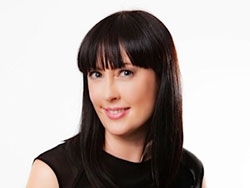Nurses with prescribing qualifications are lining up to be the first registered nurse prescribers in New Zealand, under new regulations being introduced this month.
Regulations that allow suitably qualified registered nurses to write prescriptions for patients with common and long-term conditions will take effect from September 20.
Subscribe for FREE to the HealthTimes magazine
Nurses must have completed a postgraduate diploma in prescribing, including a period of practising under the supervision of an experienced prescriber, to be authorised to prescribe.
The expansion to nurse prescribing will affect nurses working in primary health care and specialty services, such as general practice, outpatient clinics, family planning, sexual health, public health, district and home care, and rural and remote areas, who work in a collaborative team with a medical practitioner or nurse practitioner.
Nurses will be able to prescribe from a restricted list of medicines for conditions ranging from diabetes and related conditions to hypertension, respiratory diseases such as asthma and COPD, anxiety, depression, heart failure, gout, palliative care, contraception, skin conditions and infections.
FEATURED JOBS
St Vincent's Private Hospital
Nursing Council of New Zealand chief executive Carolyn Reed said the Council has experienced “a steady flow” of interest from nurses who already hold the required academic qualification.
“Feedback has been positive, especially from nurses who work in teams who can see there is a role for nurse prescribing,” she said.
“The Nursing Council will review their qualification and assess the length of time since they qualified and completed their prescribing practicum, then advise each nurse if any further evidence is required before they can be authorised to prescribe.
“More information on what evidence is needed to apply will be available soon.”
Ms Reed said the move is an exciting opportunity for nurses to expand their skills to improve access to medicines for patients.
“I suggest that if they are interested they discuss their patient needs with their collaborative team and employer to see if there is support for a nurse prescribing role,” she said.
“They should also look at the
guidance on our website to see what is required. Most nurses’ roles won’t change but they need to be aware of the potential changes for some nurses and patients and it would be helpful to understand what nurses with prescribing can do.”
Nurse practitioners have been prescribing in New Zealand for the past 14 years while diabetes clinical nurse specialists have been prescribing since 2011.
Ms Reed said the benefits of registered nurse prescribers for some health consumers will be enormous.
“It will improve access and enable teams to work more effectively, using their respective skills and knowledge where they are most needed,” she said.
“Some nurses working with people with diabetes and related long-term conditions have been prescribing for some time and the evaluation of this reinforced that it was effective for patients and supported by the health care professionals working in the team.”
The expansion of nurse prescribing rights comes after the Council held a consultation in 2013, and follows on from the success of similar initiatives in the United Kingdom and Ireland.













